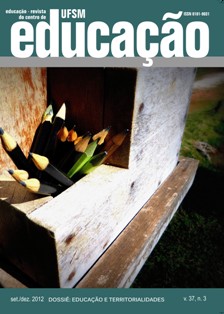Rural education in brazilian education: contradictions and perspective
DOI:
https://doi.org/10.5902/198464444172Keywords:
Brazilian education, Rural education, Educational policy.Abstract
This work focuses on the rural education. It aimed to analyze and discuss the rural education in the Brazilian educational context, indicating its character and its importance from the 1990s in the perspective of building an education aimed at human emancipation and that contradictory it is also supported and guided by neoliberal educational policies. From the studies of production on rural education was found challenges, problems, difficulties and contradictions that permeate the attempt to create a perspective of rural education. The concept of rural education was initially developed within the Movement of Landless Workers (MST) and other social movements from the political pressure and demands for the state to take over public education / field took dimension of public policy. This complex situation currently directs rural schools, a critical perspective that seeks an education beyond the capital.Downloads
Published
How to Cite
Issue
Section
License
Declaration of originality
We declare that all articles present in the journal Educação (UFSM) are originals and were not submitted for publishing on any other publication, as a whole or a fraction. We also declare that, after being published by Educação (UFSM), a paper will not be submitted to another journal within two years. After this time, our journal transfers the publishing rights to the authors, with a permit granted by the Editorial Council.
We also acknowledge that the originals’ submission to Educação (UFSM) implies on a transference of copyright for physical and digital publishing to the journal. In case of noncompliance, the violator will receive sanctions and penalties predicted by the Brazilian Copyright Protection Law (n. 9610, dated 19/02/98).
Attribution 4.0 International (CC BY 4.0)
This license lets others remix, transform, and build upon the material for any purpose, even commercially, and copy and redistribute the material in any medium or format.

This work is licensed under a Creative Commons Attribution 4.0 International (CC BY 4.0)






